Website Speed and SEO What: IT Departments Need to Know
by Stephanie Faris on Tuesday, April 04 12:00
 Websites serve as the backbone for everything today's businesses do.
Whether a business sells products or services, caters to customers or other businesses, or has one customer or 5,000, an online presence is a must in order to get the word out about what they're doing.
Websites serve as the backbone for everything today's businesses do.
Whether a business sells products or services, caters to customers or other businesses, or has one customer or 5,000, an online presence is a must in order to get the word out about what they're doing.
Simply publishing a website isn't enough. Businesses need to make sure it ranks well in search engine results for customers to be able to find it.
For businesses that have their own IT departments, those experienced professionals can actually boost their business's reach by ensuring both the website and its host are search engine optimized (SEO).
For IT professionals who host websites for a wide variety of clients, good search rankings means job security.
If customers like their results, they're more likely to keep their websites on your servers, providing you a monthly income for many years to come.
Whether you're acting as an advisor to business leaders or hosting websites on your servers, it's important to know how website load speeds affect SEO.
Here are some of the key factors impacting load speeds.
Page Design
Website design may be handled by the same team that manages a business's other IT responsibilities, but server administrators often have little control over the actual development.
Still, when teams become aware that load time can affect SEO, they may turn to the networking experts for help. When that happens, it's important to be armed with information about the page elements that can affect load times.
Google's PageSpeed Insights can put that information in black and white, identifying oversized pictures, plugins, and other features that might affect your search rankings.
Third-Party Hosting Sites
If business users rely on a service like WordPress or Wix, the slowdown could be traced to those services.
Ideally, your pages should load in half a second, but Google will see it as slow at two minutes. In Google speed tests, WordPress sites came in first, followed by Weebly.
Instead of relying on these services, though, network administrators may be able to recommend a hosting service dedicated to their unique needs.
By reading up on the most reliable providers, you'll be prepared to recommend an alternative if you're ever asked.
Network Resources
For technology professionals who host websites, sluggish websites can be a business killer.
The top providers use Content Delivery Networks (CDNs) to overcome the geographic challenges that create slowdowns.
Instead of fetching content from the other side of the country, a device will call it up from a couple of states away, speeding things up considerably.
Additionally, a CDN can redirect customers to alternative sites if one source malfunctions.
Businesses put a great deal of effort into building a strong web presence, so poor search performance can be frustrating.
When network administrators can help by either acting as an advisor or improving page load times, they can better serve the businesses they support each day.
It's important to continue to read up on current best practices to always be prepared to answer the question, "Why is my website ranking so poorly in search results?"
